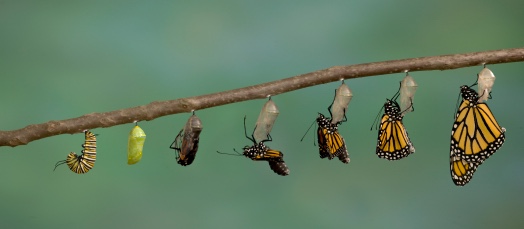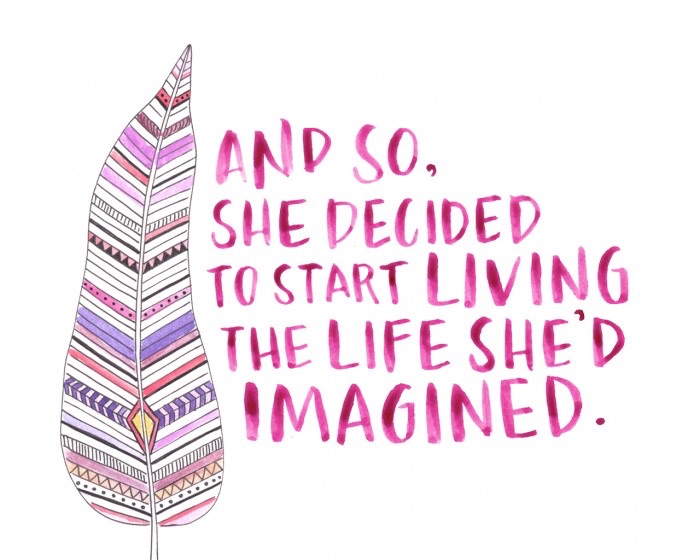On The Uses of Life Writing

We already possess the potential for transition from grub to butterfly.
The DYCP project has forced me to consider my relationship to life writing. Especially my ability to manage the realities of personal exposure.
I committed to a gruelling project. As such, I’ve had to re-inhabit a distressing and painful period in my life. And I’ve had to consider how much I want my creative life to be bound to the public reliving of personal of experiences.
Stilling the Inner Voices of Admonition
The desire to have others bear witness to one’s experience whilst metaphorically wanting to hide behind the sofa, is a contradiction inherent in life writing. And it’s one that I have not fully resolved. I’m not a ‘me’ sort of person. I’m an other-focussed rescuer. In this context, writing about myself with the express intention of public sharing, feels unnatural and awkward. I can hear my Grandmother’s stern reproaches about showing-off – small children, especially girls, were to be seen and not heard.
Whilst other writers might have the confidence and ego to ‘write it, publish it and be damned’, I worry about upsetting other people. It feels selfish to own and share one’s story at the expense of another’s sense of wellbeing. But this means committing to a lifetime of not speaking-up, of not authentically being the protagonist in one’s own story. This is a sacrifice I would never demand of others.

Getting the DYCP award helped me to stand more boldly in my own light. The Grandma in my head might still be telling me off, but the award has helped give validity to my creative practice. This in turn has helped me to turn down the volume on Grandma’s megaphone.
Arts / Science Collaboration
Thinking about the uses for life writing and how to share my work, I met with Bobbie Farsides, Professor of Biomedical Ethics at the Brighton and Sussex Medical School. We talked about using the text as a training tool for trainee GPs.
Following our initial conversations, Bobbie then put me in touch with Rose Turner FRCP, Consultant in Palliative Medicine at the Martlets Hospice in Brighton. We’d hoped to organise an event as part of Brighton Festival in summer 2019. But, due to people’s availability and some of my own health issues, we decided to put it on hold.
The event was to combine readings of my work, interview/conversation with Rose and then a panel discussion before an audience of public and medics.
Although now on hold, this is a really exciting development and positive outcome for the project because it means 36 Hours could have real and lasting public benefits. It’s been exciting to consider the potential of an arts/science collaboration. And to think about how these initial discussions might lead to further public engagement with the work.
My Story – a course in life writing
In addition to the work for DYCP, I also wrote and delivered My Story, a 6-week creative writing course in Life Writing. This has been a hugely satisfying and rewarding experience. Following this success, I plan to develop this into an online programme and build a community around life writing.
I’ve found this process of writing and teaching a life writing programme deeply rewarding because it’s been a way of exploring and sharing my life writing process and practice without personal exposure.
And I’ve learned that, just like me, people have a deep need to reveal and share their stories. What could be more human, after all? What my course does is help people to find the ‘story’ within their story, often with surprising (to them) results.
I’d now argue that the merits of life writing as process and practice are almost greater than the text outcome. It’s been interesting to observe how a deep engagement with personal narrative is a fantastic catalyst for getting to grips with what makes a great story. In fact, since grasping the nuts and bolts of good storytelling, some of my participants have gone on to have success with fiction writing.
Next Steps
Overall, DYCP has been a game-changer for me. Receiving the award raised my level of confidence and has allowed me to ‘own’ my identity as a writer.
Next steps for me are:
> confirming an agent to support the distribution of 36 Hours.
> developing an online life writing programme to build an international community of life writers.
> delivering a public event with BSMS and exploring the potential for extending this to other areas.
> holding a residency at two locations in the east of England to roll-out a life-writing engagement programme.
Emerging
I can now see that a future career transition really is possible. Moving away from my life at the business end of the arts and towards a focus on my writing practice. This is an incredibly energising thought.
I’ve also realised that we already possess the potential for transition from grub to butterfly. With the right encouragement and commitment, whatever our age or circumstances, we can emerge and fly.
This will be my final DYCP blog post, but it’s not the end of the story.
A series of blog posts about my journey through my Arts Council England Developing Your Creative Practice project.

I just wanted to say thanks for letting me follow the journey you’ve been on. I know it’s been a bumpy road some of the time, but I’m so pleased you’ve been able to do it. Here’s to fulfilling creative journeys!
Thank you Julia!